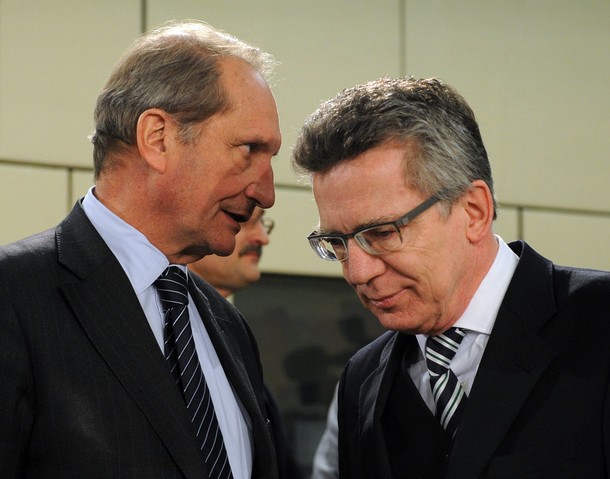
From Elisabeth Bumiller, the New York Times: Reacting to consternation among NATO allies, Defense Secretary Leon E. Panetta sought to clarify on Thursday night that American troops would not step back entirely from combat in Afghanistan next year but would allow Afghan security forces a “lead” role. . . .
Mr. Panetta, who was visiting NATO military headquarters here, was reacting to concerns among the allies about his statement to reporters while traveling to a meeting with them here that “hopefully by the mid to latter part of 2013 we’ll be able to make a transition from a combat role to a training, advise and assist role” in Afghanistan. It was the first time that the United States had put a date on stepping back from a central role in the conflict, at least before the end of 2014, when most of the troops are scheduled to be home.
Mr. Panetta’s comments, which reflected the Obama administration’s eagerness to get out of the unpopular war, were immediately dissected by European nations that are under pressure from their parliaments to bring their troops home from the decade-long conflict. European officials said it would be hard to persuade their own countries to stay put if the United States were perceived as rushing to the exits.
France, however, continued to move toward accelerating its withdrawal from Afghanistan a year early. The French defense minister, Gérard Longuet, reiterated in an interview late Thursday in Brussels that his country would withdraw its combat forces from Afghanistan — 2,400 soldiers in Kapisa Province — by 2013, although about 1,200 French personnel would be left behind in a support role in Kabul and other areas until 2014.
At the same time, the French proposed on Thursday that all NATO nations fighting in Afghanistan should consider ending their combat roles in 2013 to give the Afghan forces more time to prepare for the departure of most foreign troops the next year. “We must not leave the most difficult for the end,” Mr. Longuet said.
Still, there was plenty of confusion over Mr. Panetta’s remarks. “He said the combat role will come to an end, but he also said combat will continue,” one senior NATO official said Thursday afternoon. At another point, the same official said that Mr. Panetta’s comments were premature, and that NATO would make any decisions about the combat role of the alliance in Afghanistan.
“I’m not saying that Secretary Panetta wasn’t right for what he said,” said the official, who asked not to be identified by name under ground rules imposed by NATO. “I’m just saying as NATO, there’s been no decisions — we’re still working this, we’re consulting with our allies. There are different views about when this should happen, how quickly it can happen.”
NATO was consumed by semantics for much of the day, but on Thursday evening, Mr. Panetta offered a general explanation of what putting the Afghans in a lead combat role would mean for American troops on the ground. Afghan security forces, he said, would “decide, obviously, patrols, tactics, enemy targets.” He added that “we’ll be there for support, we’ll be there for guidance, but they’re the ones who will be in the lead and conduct the operations.” (photo: Getty)
Image: getty%202%203%2012%20Longuet%20de%20Maiziere.jpg
